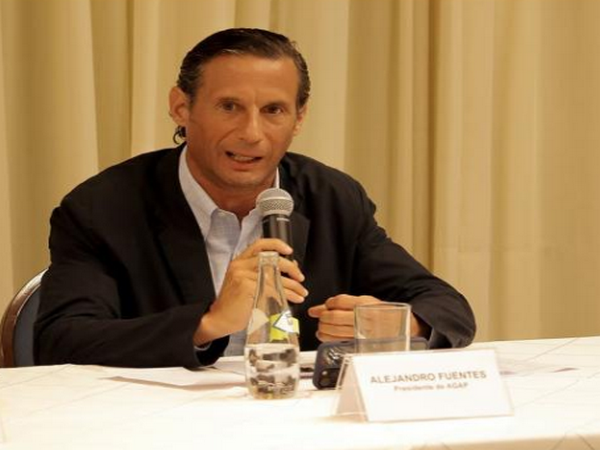Tomorrow will mark two months of a deep political crises in Peru with the fresh produce export sector calling for peace. Leading the call for peace on behalf of Peru’s table grapes, blueberry, mango, avocado, exotic and other fresh fruit and vegetable export industries is Alejandro Fuentes, President of the Association of Agrarian Producers Guilds of Peru (Agap).

“Peruvians need to have peace, in some areas they have to go back to work. Over the past three years, there has been a lot of instability, the agriculture sector has been going through a difficult moment, just like the rest of the world, Peru is not an exception. However, our current situation is something on top of all these global challenges. It is hurting the reputation of Peru as a reliable supplier. We expect the political situation will get better soon, but it is very difficult to forecast when exactly. Government is doing a good job trying to secure some crucial assets.”
Peru’s security forces were able to clear some key highways between the major production area of Ica and the capitol of Lima. Fuentes says they hope this will be sustained to ensure a constant flow of goods and exports. “The roads were blocked for around 16 days out of 40. The situation right now is unsustainable. The government is aware of that. We had meetings with different Ministers of the Interior and others. They told us they understand the situation. We need to have people on farms and pack houses. There is a numbers of losses from December and during January in the La Libertad region there were also some blockage of the roads. The losses for the asparagus, blueberries and table grapes, so far our estimates are around $300 million dollars,” says Fuentes.
He says people are protesting not against the government but the situation in the region. “There are delinquents and violent people who are taking advantage of the situation. They attacked the police and government institutions, including five farms in Ica. People were not hurt, they were setting things on fire. They burned the small security offices of one of the farms at the entrance. The workers were forced to leave the farm, it is crazy, people go against key rights that includes the right to work. All of us have the right to work, to transit from one place to another. In some areas Ica and Arequipa, areas that export to the world, those two rights are not free to be enjoyed. It is really a small group of people who are blocking the roads and attacking private property.”
He says Peru has 25 regions, with two of the main production regions with around 100 000 people who are affected by this current situation. “Unfortunately, for them it is during the peak table grape, pomegranate and avocados packing season. This is the time of the year when they earn not only a salary but extra’s through all kinds of bonuses. Right now a worker in the table grape industry earns around $25 per day, which is a meaningful salary for Peruvians, especially for a farmworker, who did not have access to further higher training. People in Ica are starting to complain, these protests are going on too long. They are saying it goes against my job interest etc. Products in markets and shops have become more expensive in Ica due to the ongoing protests.”
The recommendation from Agap to producers and workers is to avoid direct confrontation with protestors. Fuentes says at the end of January there was no cold storage available, because it was full of asparagus and table grapes. With some roads being unblocked the pressure at colds stores started to ease.
Ways to end the crises
“I have gone through the 80’s when we had terrorist groups. It was very different to what we experienced in the past few weeks. It is a shame that Peruvians cannot go back and dialogue and give a chance to the government, it’s a brand new government. The next elections are only in April 2024. We need to go back to have peace first and have dialogue. There are many reasons why people are tired and impatient of waiting for government to do something, especially those in the highlands that have seen less of the growth and prosperity that Peru has seen. The government needs to do more to close the gap in the highlands and rural areas so that it is much less than it is today. The government and private sector have to come together, they need to have this dialogue and have a clear picture of what we would like Peru to be 30 years from now.”
According to Fuentes Peru’s agriculture came from nowhere and developed into a world supplier of fruit in 30 years. “We are resilient country, Peru has gone through many difficult periods. We have been able to solve our differences, to make things more even between all of us. It is not that different to what’s going on in other countries. We have reached a point where politicians don’t have credibility with the population. That seems to be the problem. They don’t connect with us and understand what our needs are. Not only government but also the parliament. We need to have new people with a different mind-set, they need to have empathy and connect with people. In order to get to the dialogue you need to have peace first. Everyone must calm down, we all agree that politicians are not 100% anymore, but we do not need this violence,” appealed Fuentes.
For more information:
Alejandro Fuentes
Association of Agrarian Producers Guilds of Peru
Email: hcorpus@agapperu.org
www.agapperu.org
